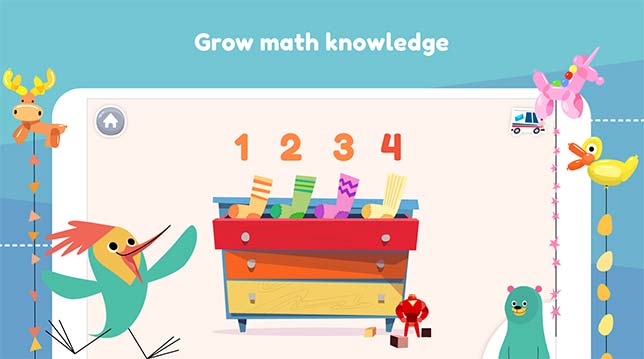Khan Academy Kids Launches for Early Learners

Nonprofit Khan Academy has launched Khan Academy Kids, an educational app designed for early learners (ages 2 to 5). The full app is available free for iOS and is in beta for Android.
The app includes "thousands of original activities, books, videos and lessons" and "combines subjects like math and reading with creative activities like drawing and storytelling. Animated characters guide children through educational materials at just the right level for them."
According to Khan, the lessons are standards-aligned (Common Core for kindergärtners and Head Start Early Learning Outcomes Framework for preschoolers) and include social-emotional learning components.
Other features include:
- Learning materials from National Geographic Young Explorer Magazine, Bellwether Media and Skyship Entertainment;
- Tools for parent participation;
- Parents can also view their children's progress;
- Parents can set up accounts for multiple kids.
"We worked with educators from the Stanford Graduate School of Education and notable book authors to create a curriculum and library of original books that teach key academic skills as well as social-emotional development and healthy habits," said Caroline Hu Flexer, head of Khan Academy Kids, in a prepared statement. "We designed highly interactive learning experiences around the award-winning Super Simple Songs, which feature animation and puppetry in beloved classics like Baby Shark and the Muffin Man."
Khan Academy Kids is available now on Apple's App Store. A beta version is available free for Android on Google Play and the Amazon App Store.